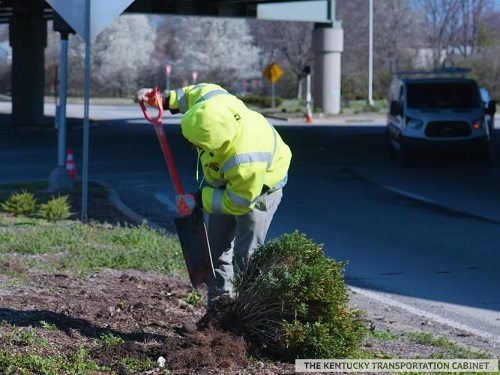A now five-year-old program started by the Iowa Department of Transportation helps incarcerated individuals regain their driving privileges before leaving the state’s prison system – an effort started to reduce the chances of recidivism, the agency said.
[Above photo by Iowa Dept. of Corrections]
Started as a pilot program in 2020 in partnership with the Iowa Department of Corrections, the Iowa DOT’s Mobility Manager program within the agency’s Motor Vehicle Division’s Customer Services Bureau provides several driving services through five onsite offices and two remote arrangements.
The program currently operates at seven of the nine prison institutions: Anamosa State Penitentiary, Clarinda Correctional Facility, Fort Dodge Correctional Facility, Iowa Correctional Institution for Women, Mount Pleasant Correctional Facility, Newton Correctional Facility, and North Central Correctional Facility & Correctional Release Center.
A dedicated Iowa DOT team helps inmates renew licenses, receive vision screening, get identification photos, pay licensing fees, perform driving tests, and obtain state-issued identification cards to “get a jump start” on life outside of prison walls.
Over the last 12 months alone, the agency said its “mobility coordinators” have logged more than 4,500 interactions with incarcerated individuals and have issued more than 650 credentials.
“We are committed to providing competent guidance to these individuals to improve their quality of life, which makes our communities better at the same time – everyone benefits,” noted Natasha Lewerke, leader of Iowa DOT’s mobility coordinator team, in a blog post.

[Editor’s note: Many state departments of transportation are involved in a range of programs to help former incarcerated individuals re-establish themselves once their prison sentences end – everything from obtaining hands-on work crew experience in landscaping, graffiti removal, rest area cleaning, and litter pickups to community college grants and job-fair opportunities.]
Lewerke hopes that the driving services provided by Iowa DOT will “eliminate barriers” and increase their chances for success by enhancing their mobility.
“In a majority of cases, driving privileges need to be restored to achieve fulfillment in employment, family life, and the things that most of us who are not involved with the justice system take for granted,” she noted.
As incarcerated individuals attempt to rejoin society, their criminal record can limit their access to education, jobs, housing, childcare, and other things necessary for a productive life. To be successful in any of those areas often involves transportation. But even after completing their sentences, these men and women face still legal restrictions and social stigma. This is sometimes called the “second prison.”

The Mobility Manager program aims to make transportation a pathway instead of a roadblock. Amy Owen at the Iowa Correctional Institution for Women in Mitchellville stressed that a former inmate’s ability to obtain licenses, state-issued IDs, and permits that allow them to drive is one of their biggest challenges transitioning to a new community.
“There’s already a lot of barriers to begin with. How to get back and forth to appointments, how to get back and forth to parole officers, and some people have to do the OWI [Operating While Intoxicated] program,” she said.
Owen noted that the program has evolved to provide a level of personalized, one-on-one assistance to navigate what can be a difficult process for individuals who often have complex driving histories to straighten out.
Iowa DOT mobility coordinators and Iowa Department of Corrections staff noted that restoring driving privileges for former prisoners can literally change the course of family history and prosperity.
According to Adam Russell with the Iowa Correctional Institution for Women, some inmates are able to work for employers while serving their sentence. When released, many employers want them to go to work that very day or in the coming days – thus a lack of transportation can create a serious problem.
He said that the partnership has been instrumental in helping former inmates hit the ground running and achieve things that they didn’t think they were capable of.
“Some of them had never had a license or it has just been in a status that didn’t allow them to drive for a long period of time,” Russell noted, adding that to watch them checking some of those boxes that we take for granted like having a car, having a house, and getting a license completely reshapes their mindset.
“The license may seem like a small piece of that, but it then propels them to achieve in other areas of their life,” he said.
 States
States


